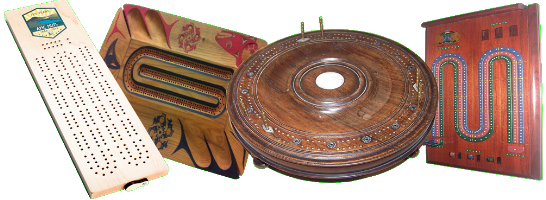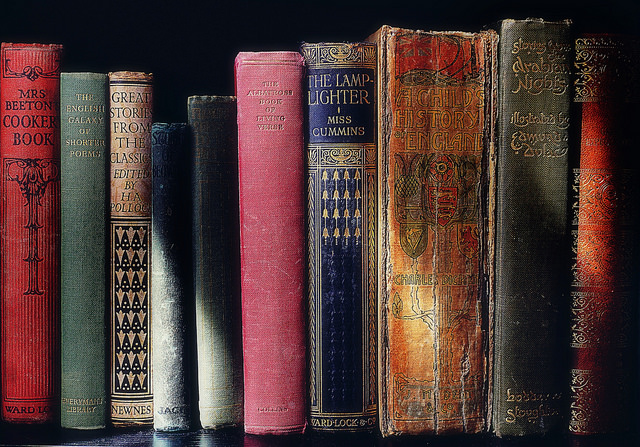One of the things I love about travel is that it reminds me how big and how varied the world really is. I don't expect I'll ever travel as much as I wish I could, but at least reading books set in other places makes a pretty good consolation prize.
The book I really want to get my hands on this summer is set in Japan: Convenience Store Woman by Sayaka Murata. A single article about it in the New York Times was enough to pique my interest.
I'd also like to find a book that covers some New Orleans history. Spending a few days there made me well aware of just how little of the region's history I know. One of the most striking things I saw there was an empty pedestal. It was only when I consulted a map and saw the name "Lee Circle" did I realize what had been there. I'd known in the abstract about statues being removed last year, but somehow it felt different when the evidence of it was right there in front of me.
So . . . what are your favorite books set in places far from your home? And more generally, what have you been reading?


When we were in New Orleans a couple years ago, I picked up a history of the city, The Accidental City: Improvising New Orleans by Tulane professor Lawrence Powell. It was OK, very straight-forward and facts oriented.
I tried to think of novels that evoke that sense of place ...
Lagoon by Nnedi Okorafor - Lagos
Sag Harbor by Colson Whitehead - The Atlantic Shore
Brief History of Seven Killings by Marlon James - Jamaica (this one does so much more than just capture a place, but it does that extremely well)
Signs Preceding the End of the World by Yuri Herrera - US/Mexico border
I'm struggling to think of "place" books that don't also really hammer in a specific time. Like, post-serfdome pre-revolution Russia from Dostoevsky, or Hemingway's stories that seem very time-specific too.
I don't see a reason to exclude books just because they also evoke a specific time period.
One that comes to mind for me is Montana 1948 by Larry Watson. It has a powerful sense of place, and that place is also contextualized by the time period in which the book is set. I was talking with a writer recently about that book, and we both have almost visceral memories of a scene near the end of the book.
I just took your lead-in to be much more place-oriented than place-and-time oriented. So, for example, in several Dostoevsky novels horses and carriage travel play a role, and that to me screams "time period" more than location.
I guess maybe Crime and Punishment is very St. Petersburg specific, with Raskolnikov walking all over the city.
For Russia, I think no book better placed me somewhere than Anna Karenina did in St. Petersburg.
My Swedish cousins had to incorporate a stop to Lindström, MN because of this series of books. Have not read them, but I picture them as an international borders Little House on the Prairie.
Like DG mentioned, A Brief History of Seven Killings really put me in Jamaica (and New York for a few passages).
Exit West did a good job putting me in a fictional city in the midst of civil war.
Pretty much all of the Philip Roth books I've read placed me deep in Newark and the surrounding areas.
I strangely haven't read too much about New Orleans (probably because the New Orleans my in-laws like to read about and tell me about is not the New Orleans I would like to know more about). Still, my two favorites are A Confederacy of Dunces and Rising Tide (which isn't just about New Orleans, but the huge Mississippi flood in 1927).
Christopher Clark’s The Sleepwalkers: How Europe Went to War in 1914 was pretty effective at unfolding all the circumstances that lit the European powder keg. Considering the last of my family had just left the Archduke’s empire a few years before, it gave me a sense of the geopolitics that made it such a difficult place to live.
I love Raymond Chandler’s landscapes of Los Angeles, Graham Greene’s Saigon, Larry McMurtry’s Texas. Now that I’ve seen Chimney Rock & visited Omaha, Nebraska holds no appeal except in Willa Cather’s prose. Karl Marlantes’ Matterhorn makes Vietnam a character in itself from the first chapter.
In the past month I read Phillip Metres’ Sand Opera (wow) & Edmund Morris’ The Rise of Theodore Roosevelt (it’s showing its age). I also reread Alan Watts’ The Wisdom of Insecurity: A Message for an Age of Anxiety, finding it better than my first time, though still with major quibbles. While I debate whether to give Morris another 1400 pages to cover TR’s presidency & post-presidency, I’ve moved on to Solmaz Sharif’s Look (Graywolf!) & Jeff Greenfield’s Then Everything Changed: Stunning Alternates Histories of American Politics.
While you're debating, I'll tell you that each book in Morris's trilogy was worse than its predecessor.
Uffda. I’d like to know more about his presidency & the ill-fated Progressive run against his own former VP. How much worse?
The Bully Pulpit was a much better book for addressing those issues (although still left a lot to be desired). Historical treatments of Teddy bother me for the same way most historical treatments of Jefferson do: they focus on the parts of the man that were undeniably great, but then seem to gloss over the fact that the greatness also corresponds with a healthy dose of assholery disguised as a 1,000,000% certainty that the man knew what was best and anyone who disagreed was automatically a traitor.
Another book that popped into mind for me for creating a place was His Bloody Project about the nineteenth century Scottish Highlands (of which I knew absolutely nothing).
I’ve been reading a collection of counterfactual histories by a former Bobby Kennedy speechwriter. It was published recently (2011) but it’s increasingly clear the guy still detests Gene McCarthy.
No books to reference here, but I did recently pick up one of the Mrs' New Yorker magazines the other day and read this article: The Hunt for Mexico's Heirloom Beans. It's a fascinating mostly-profile of Steve Sando, founder of Rancho Gordo, a purveyor of heirloom legumes.
Ooooh, I love Rancho Gordo.
I've picked up a lot of light reading for the summer t the used bookstore: Steven King, Grisham, etc.
I just started the Henrietta Lacks book. And I bought "She Has Her Mother's Laugh."
So, light reading mixed in with science non-fiction.
Favorit 'Place-Setting' Books:
While I was studying wildlife biology at the U of MN in 2001, some of us read selections from What Are People For and Home Economicsby Wendell Berry. Mr. Berry visited Mpls. and read an excerpt of his newest novel,Jayber Crow . Port William, KY is a fictional city, but it represents something of the agrarian culture & community which feels lost to history, as well as clues about how it could be rediscovered... emphasis on community. When I did travel through this part of Kentucky, it was like I'd been there before.
Recently Read:
Churchill's Ministry of Ungentlemanly Warfare: The Mavericks Who Plotted Hitler's Defeat by Giles Milton
Finders Keepers by Stephen King
Almost done with Poldark series. Refuse to watch the TV series till I’m done
Also reading Sons and Lovers by DHLawrence while on vaca in France. Hugoesque in its despair and bummage but I’m sure things will lighten up - or they all die of pneumonia or plague...
For several weeks Mrs. Twayn has urged me to read A Man Called Ove. So this week I finally obliged her. The next time she recommends a book I won't wait so long to read it. I absolutely loved this novel by Swedish author Fredrik Backman. It took a few chapters to get into the action. It's the sort of book that's very careful about how much it reveals about the protagonist and when, but that doesn't mean you don't get a sense of the character right away, because you do. That's the what of the story. The why is more elusive, and so much more satisfying when revealed. Coincidentally, when the book begins Ove is the same age as I am. He's a man of principle and I can identify with that. For example, I never stand for God Bless America at the 7th inning stretch because it isn't the national anthem and standing for it cheapens the respect I show the Star Spangled Banner and anybody who doesn't understand that could well be a moron. But it's a free country so if they want to look like ruminant quadrupedal even-toed ungulates kept as livestock, that's their own cross to bear. But I digress. It's a book about love and loss and the trials, tribulations and rewards of human connections. It's also about what you can tell of a man by the car he drives. I recommend it highly.